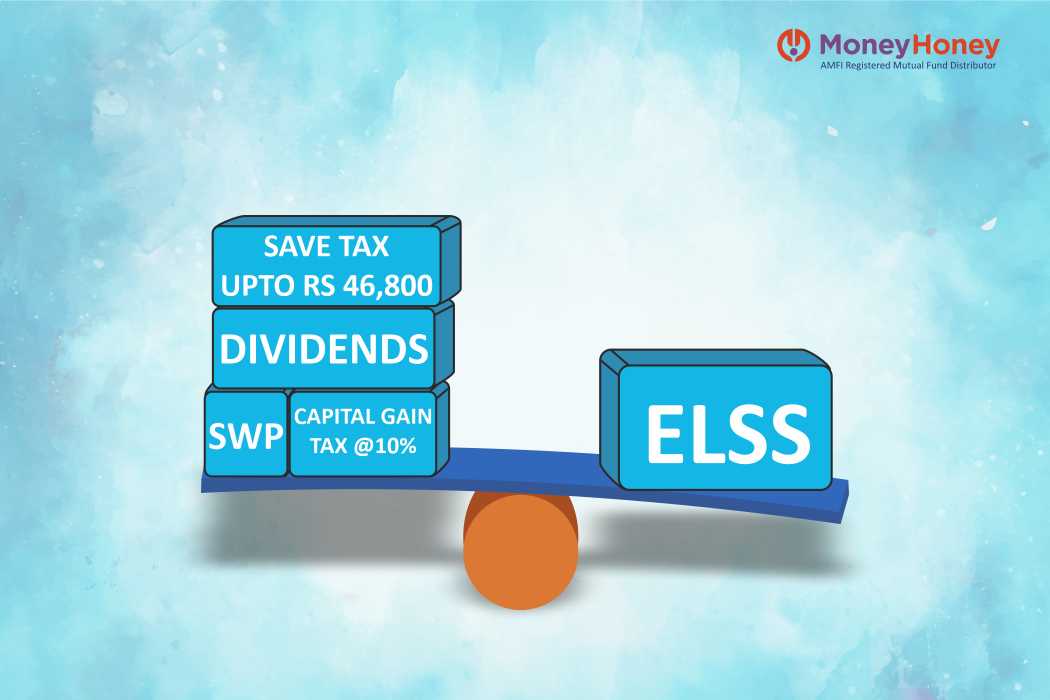Come March and many investors -especially self-employed are worried about their investments in tax-saving investment avenues. Businessmen consider it a formality and move on. Equity Linked Savings Schemes (ELSS)- popularly known as tax savings schemes are a recommendation from many experts. But there are many who ask– ‘aur kuchh naya kar sakate hai?’ (Is there some other option available?). These investors must understand that they underestimate mutual funds.
This is not a ritual post trying to underscore how tax saving funds can help you to cut tax bills and build wealth over time. We all know that a contribution of up to Rs 1.5 lakh in a year to units of ELSS can bring in deduction under section 80C of the Income Tax Act. But there are a few more angles we are going to explore now.
Just to put the context right, mutual funds act as a trust. They are 'pass through vehicles'. To put in simple words – mutual funds do not pay taxes. In an equity fund, many investors pool in money. The money is invested as per the investment mandate of the scheme by the fund manager. The fund manager may keep buying and selling stocks as and when he deems fit. There may be many instances of booking gains and losses – both short term and long term. But the mutual fund schemes do not pay any tax. The tax liability is on investors' side. When an investor decides to sell her units, her tax liability gets crystalised. For equity funds, long term capital gains (on units sold after holding for minimum one year) are taxed at the rate of 10% if they exceed more than one lakh in a year.
This is all known – what is new in this? Now compare this to more exotic products like small case and portfolio management services. In these products the trades are executed in the name of the investor. So, each time a trade takes place, investors are subject to paying taxes – both short-term and long-term capital gains.
Some investors look at stocks as a source of some income. They look for dividend-paying stocks. The idea is that cash machines companies will keep distributing surplus cash to investors each year and investors will keep pocketing it in the form of dividends. But the catch here is: dividends are taxable in the hands of investors. So for most investors in higher tax brackets dividends are not at all attractive. Also, dividend receipts in the hands of investors may not be reinvested nor used for desired purposes as small amounts may get used in daily expenses. Situation however is far different for mutual funds.
Dividends received by mutual fund schemes are not taxable at scheme level. Remember the aforesaid point – mutual funds are 'pass through vehicles'. Mutual funds invest in shares of companies in line with their investment mandate. Fund managers may not be investing in shares with the sole objective of earning dividends. But they do receive dividends as and when companies declare dividends for the stocks they hold in their portfolios. Such dividend receipts are reinvested by schemes. There is no tax incidence and the money keeps compounding.
Investors keen on some regular income from equities hence should ideally look for Systematic Withdrawal Plans (SWPs) from equity funds. Remember – the dividends declared by the equity funds are also taxable in the hands of investors as per slab rate. This makes dividends unattractive. Also, an investor has no role to play on the timing of declaring dividends and the quantum of dividends by equity funds. In such a situation, an SWP can be tax efficient and also leaves a certain amount of money in the hands of the investor at regular intervals – monthly or quarterly. If an unitholder holds units of an equity fund for one year and then starts an SWP, then all the redemptions made under SWP are considered as long term capital gains and taxed at a lower rate of 10% as elaborated earlier.
Investors must not ignore these ‘tax-efficient’ benefits of investing in equity mutual funds. Most investors think that mutual funds are for small investors. Thought this cannot be ruled out, mutual funds can help to create wealth in the most tax efficient manner for big ticket investors too.



